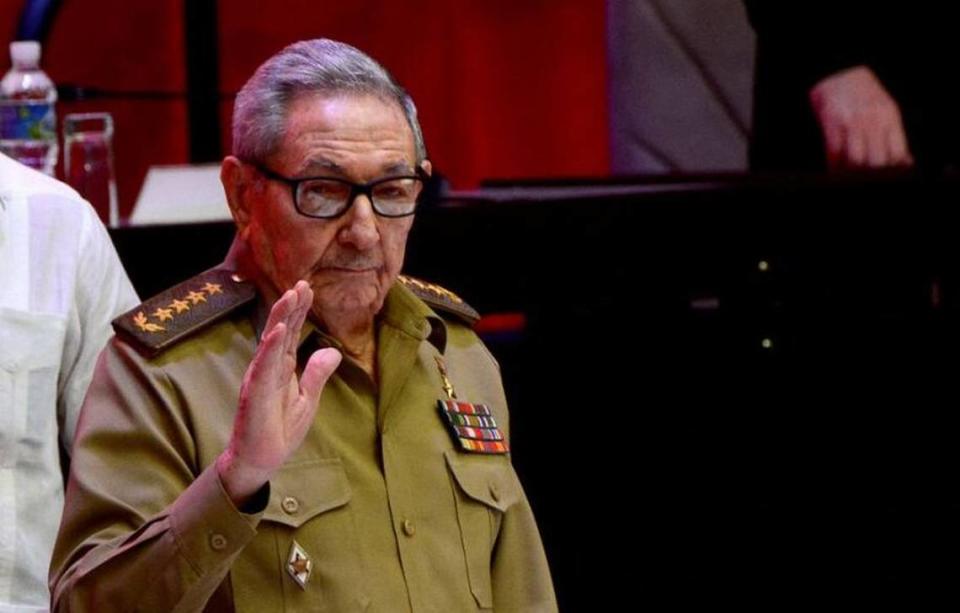Don’t be fooled — Cuba’s ‘change of leadership’ is absolutely no change at all | Opinion
All the headlines about the Cuban Communist Party’s Eighth Congress have declared a supposed “change of leadership.” But everything about it is a fraud, even if some people still want to believe it.
Fraud begins with language:
It is not a party. The Communist Party of Cuba is not an organization made up of individuals who organize to win elections as any party would. Actually, they have never run in an election. All other political parties are prohibited on the island. The constitution puts party members forever above the state and society. The party, which claims its members are 10 percent of Cuba’s population, have no real say on the designation of their leadership. The party directorate does not even resemble the late Soviet Politburo. It was created only to serve the will of Fidel and Raúl Castro.
Cuba’s president is not a president. Miguel Diaz-Canel was not elected by the people to implement and enforce the law. Rather, he was appointed by Raúl Castro to be the civilian face of the government with no real power to make important decisions.
It was not a congress. The Eighth Congress of the Communist Party this month — where the supposed change of command took place — was not a convention where the members gather to elect the leadership and adopt a specific platform. The “congress,” rather, was a meeting where all decisions had been pre-determined. The attendees were only there to accept what was ordered. The rest of Cuba’s citizens were completely excluded from the decision-making process of the “superior ruling force,” imposed on Cuban society.
Finally, it is not change. The change of leadership, as declared in the headlines, is merely changing the nameplate on the presidency. The real power remains with the Castro family, now moving into the next generation, including Raúl’s former son-in-law, Luis López Callejas, and Raúl’s son, Alejandro Castro Espín, as well as, in some degree, a few chiefs who oversee the powerful military-business conglomerate and control Cuba’s intelligence apparatus. They are trying to put a civilian face on the military-run state that is Cuba.
Some have even speculated that Diaz-Canel will be a Cuban Gorbachev. But that is naive, even more so than saying that Nicolas Maduro could have been a reformist after Hugo Chavez. In the past few years, political repression has intensified, and new laws penalize freedom of expression and entrepreneurship. For example, a decree on telecommunications in 2019 penalizes social-media posts denouncing regime injustices; the new constitution, imposed a few months before, establishes “the right to combat … through armed combat against any that intend” to change the rule of the one-party Communist system.
At the same time, there have been few moments where the Castro dictatorship has been quite so vulnerable. Decades of economic failure have produced a deep humanitarian crisis. The loss of Venezuelan oil, the pandemic and the loss of tourist revenue — as well as a currency reform — have plunged the country into food shortages and despair. In addition, the regime has implemented a currency exchange — to keep all the hard currency that enters the island — that has triggered inflation, making subsistence difficult for many Cuban families.
They know that no positive change will come from those in power, much less from the party congress. Only the people can save the people. In March alone, there were more than 180 protests on the streets of Cuba. The regime’s reply has been more repression and more violence. In the words of Luis Almagro, general secretary of the OAS, “The dictatorship of Havana applies state terrorism against its citizens.”
On April 15, thousands of Cubans lit candles or held cell phones and flashlights in nonviolent protest of the party congress. The Luz de Alarma — alarm light — protest, promoted by the Cuba Decide initiative, lit up the neighborhoods to claim that the heads of the Communist Party cannot decide the future of the nation for the people.
Democratic change in Cuba will begin only when fundamental human rights are guaranteed and citizens have a real possibility to participate.
Now that Fidel is gone and Raúl receding, he and his heirs behind the whole Communist Party congress masquerade are rearranging the deck chairs on the Titanic. No matter how weak the dictatorship has become, it won’t just give way spontaneously to a democratic transition. It must be pushed. As recent history has shown, citizens cannot by themselves confront a criminal group holding totalitarian power; the support of the international community is necessary as well.
The United States should be careful not to weaken pressure on the Cuban regime just at the point when it could have consequences. The Biden administration, the European Union — and the entire free world — now have the opportunity to side with the Cuban people, supporting our legitimate rights and our demand to determine our future.
Rosa Maria Payá is the daughter of the late Cuban dissident Oswaldo Payá.


